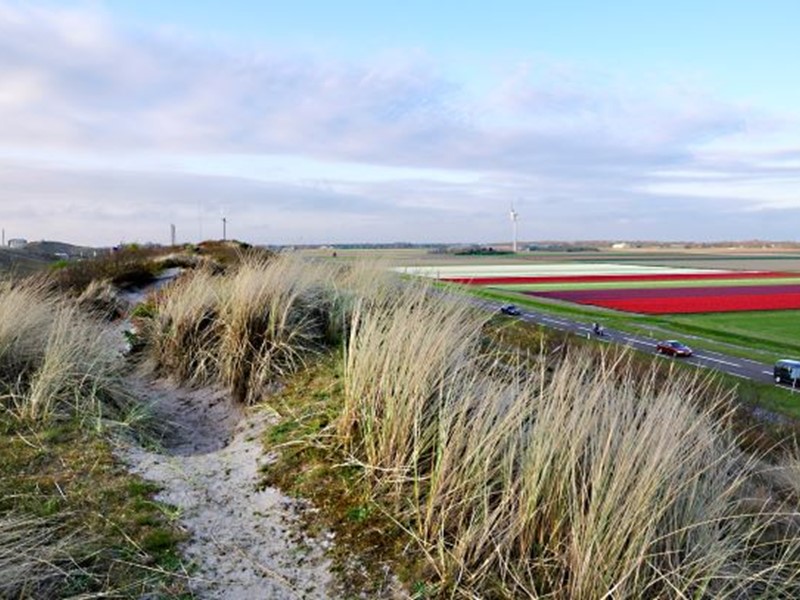NRG and PALLAS pursue a joint future as one organisation
NRG and PALLAS pursue a joint future as one organisation
14 January 2021
The Foundation NRG and the Foundation Preparation Pallas-reactor (PALLAS) intend to fuse together as one organisation, as announced by Bertholt Leeftink, CEO NRG PALLAS, today during the New Year’s Toast. This spring, the proposal for the new organisation will be further detailed. “By combining our forces, we are able to make large steps forward in the development and production of nuclear medicines used for diagnostic purposes and for the treatment of patients suffering from life-threatening diseases. To this end, we need to establish a state-of-the art infrastructure that is being developed as we speak,” said Bertholt Leeftink.
Every day, more than 30,000 patients benefit from the Petten-produced products for their diagnoses or treatment. NRG is the world’s largest producer of raw materials for nuclear medicines. PALLAS is in the process of realising the new infrastructure that is necessary to continue to hold this position. By fusing together the two organisations – located in Petten, Alkmaar and Arnhem – major action can be taken to further enhance this position.
With its unique combination of nuclear installations and expert knowledge at the Energy & Health Campus, over the last 60 years Petten developed into a prestigious location that is worldwide held in high regard. NRG and PALLAS represent two functions in this process: production and research. The production of raw materials for nuclear medicines, research aimed at the development of new nuclear medicines, and research focused on generating carbon-neutral energy.
The products and services in the field of medicines and energy are of serious social importance, now and in the future. In order to prepare for this future, the innovation of the infrastructure is in full development. The choice to continue as one organisation allows us to combine the existing nuclear technological knowledge base that we have been creating over the past 60 years with the infrastructure, innovation and impact of the future.
During the New Year’s Meeting of NRG, CEO Huub Cuijpers announced his intention to stand down as a CEO as per 1 April 2021, and to retire from NRG as per 1 July 2021. “I have much enjoyed collaborating with customers, stakeholders and colleagues, and I am proud that I have been able to contribute to the meaningful nuclear and medical activities of NRG. I will cherish the memories of my time at NRG,” said Huub Cuijpers. In de past five years, Huub has passionately dedicated his professional time to NRG. Under his guidance, important progress was made in the historical waste file, and, together with his executive committee, he has led NRG to its current successful position. The time has come to transfer the responsibilities to the new organisation.
Innovation and expanding the infrastructure
The reactor is the infrastructure’s foundation. A smooth transition from the High Flux Reactor to the new PALLAS-reactor is essential to guarantee both the supply of medical isotopes and the research function. Preparations are being made to realise the new PALLAS-reactor. For the High Flux Reactor, in addition to the existing maintenance program, NRG initiated the continued safe operation (CSO) program in 2018, which focuses on controlling the consequences of obsolescence. This program is now examining a period lasting until at least 2030 in which the HFR should remain operational.
The irradiated products from the reactor have to be further processed into raw materials for nuclear medicines. To this end, a Nuclear Health Centre will be realised that can be used to execute the necessary chemical processing steps on an industrial level. The collaboration with various national and international university hospitals and knowledge facilities must turn Petten into a European breeding ground for the development of production processes for new nuclear medicines. To this effect, research is being performed in collaboration with the academic medical centres, focused on accelerating the development of these nuclear medicines. To support this process, the FIELD-LAB is under construction.
Research and innovation
The nuclear knowledge and expertise that was gained over the past 60 years is broadly applied. The climate issue represents an important challenge to the world, and various countries are examining how to optimally arrange for a carbon-neutral energy supply. Nuclear technology may have an important part in the solution of the issue, and within that scope, NRG is doing nuclear research.
In addition to extending the operational life of existing nuclear plants, the future energy supply may be expanded by innovative nuclear reactors, like liquid fluoride thorium reactors (LFTR) or molten salt reactors (MSR). In performing this research, the High Flux Reactor, and in the future PALLAS, is intensively involved.
“The quality research that we pursue with the nuclear medicine specialists working at the FIELD-LAB, and the facilities available to realise large-scaled production, allow direct delivery to hospitals,” said Bertholt Leeftink. “Nuclear medicines are perishable products. Short lines and short delivery times therefore promote treatment for more patients. The development of new nuclear medicines demands an effort from the supply chain, and by collaborating with the hospital researchers we can actually have these new medicines taken into production. By making this step, we do not only create a more efficient production and development process, but we also remain closer to the hospitals and, as such, to the patient”.

More about?
Contact
For more information please contact

Cora Blankendaal
Press Officer
